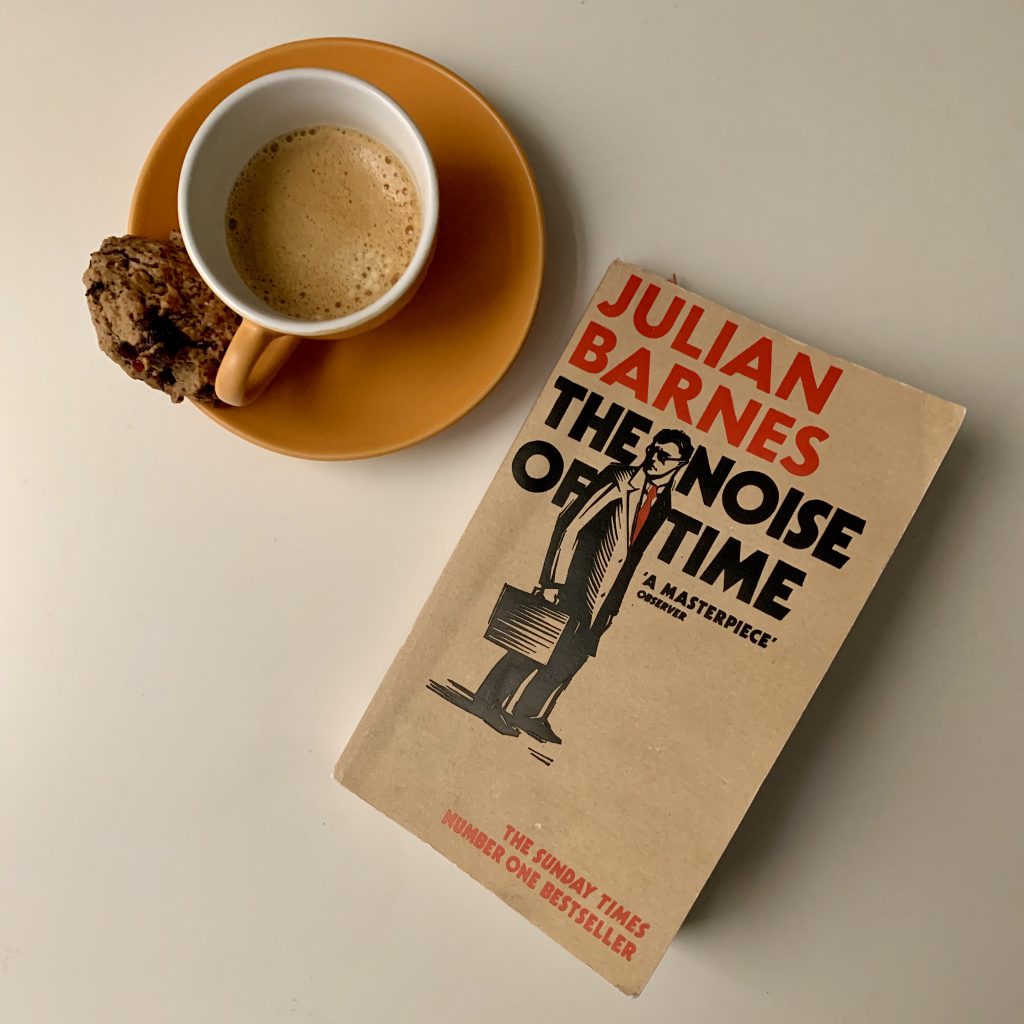Julian Barnes’ novel The Noise of Time is a fictional narrative, recounting the relationship between Stalin’s Soviet Union and composer Dmitri Shostakovich. The narrative’s organization is reflective of Shostakovich’s personality—precise and anxious. The novel begins with the proverb:
“One to hear
One to remember
And one to drink.”
The narrative opens with a brief scene of three unnamed men on a Moscow-bound train. A beggar and two men in soft coach share a shot of vodka on the platform while the train stops, waiting for some unknown military movement. While wishing one another good health, the glasses clink together in unison, creating the first of many triadic moments.
Barnes divides the novel into three parts: ‘on the landing’, ‘on the plane’ and ‘in the car,’ set in 1936, 1948 and 1960 respectively. These twelve-year demarcations each fall on a leap year and mark a significant encounter for Shostakovich with ‘Power.’ For the duration of each chapter, Shostakovich is situated in each of these stationary locations. He reflects on his encounters with Power, guiding readers through a series of scenes and reflections, that eventually lead to his position in each section. Stylistically, Barnes signifies section breaks in different ways, which make the moments seem fragmented. Some excerpts continue uninterrupted for several pages at a time. While, other scenes have several spaces placed in between each paragraph, making readers feel slightly off-kilter as they enter into each new paragraph.
Barnes’ over-structuring of the novel appears to exemplify Shostakovich’s increasingly obsessive personality under the Stalin regime. Shostakovich, both a pessimist and an artist, is expected to create optimistic music to further the Regime’s propaganda.
“If the plan to take a worker from the coal face and turn him into a composer of symphonies did not exactly come to pass, something of the reverse happened. A composer was expected to increase his output just as a coal miner was, and his music was expected to warm hearts just as a miner’s coal warmed bodies.”
Shostakovich’s compulsiveness helps him meet deadlines and work despite the constant pressure. Yet, he often must reckon with the Regime’s expectations while attempting to create what he believes to be good art. Throughout the novel, Shostakovich compromises with Power to keep his career: re-writing his compositions, denouncing his favorite composers and reading Party speeches. Shostakovich makes the ultimate sacrifice only at the end of his career—joining the Communist Party.
“You write a final movement to your Fifth Symphony which is the equivalent of painting a clown’s grin on a corpse, then listen with a straight face to Power’s response: ‘Look, you can see he died happy, certain of the righteous and inevitable triumph of the Revolution.’”
Stats
Title: The Noise of Time
Author: Julian Barnes
Publication Year: 2016
Pages: 179

